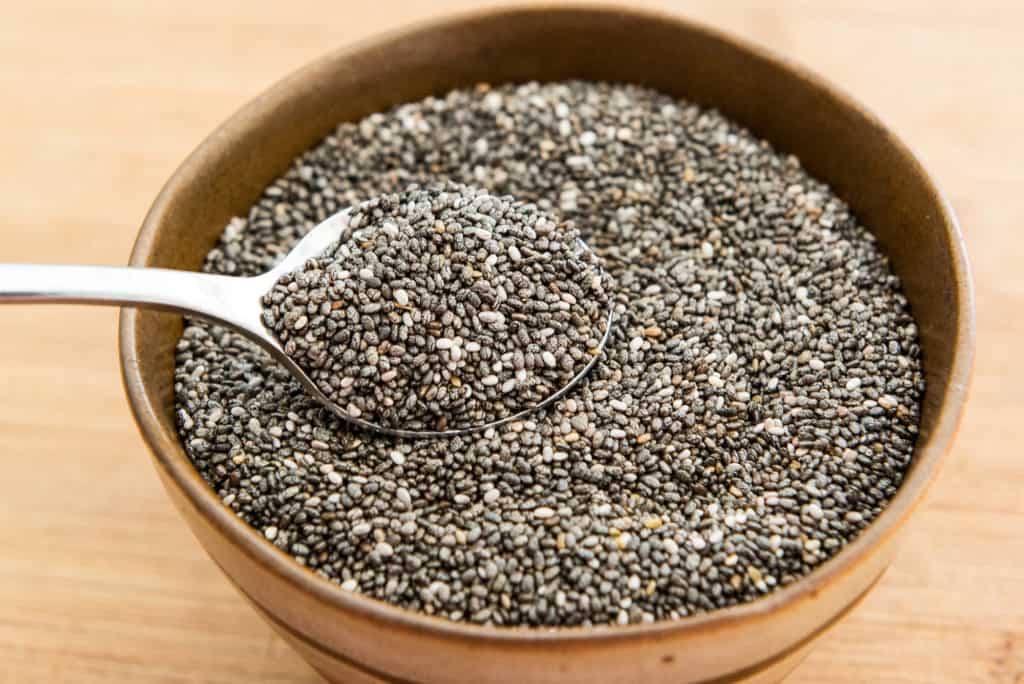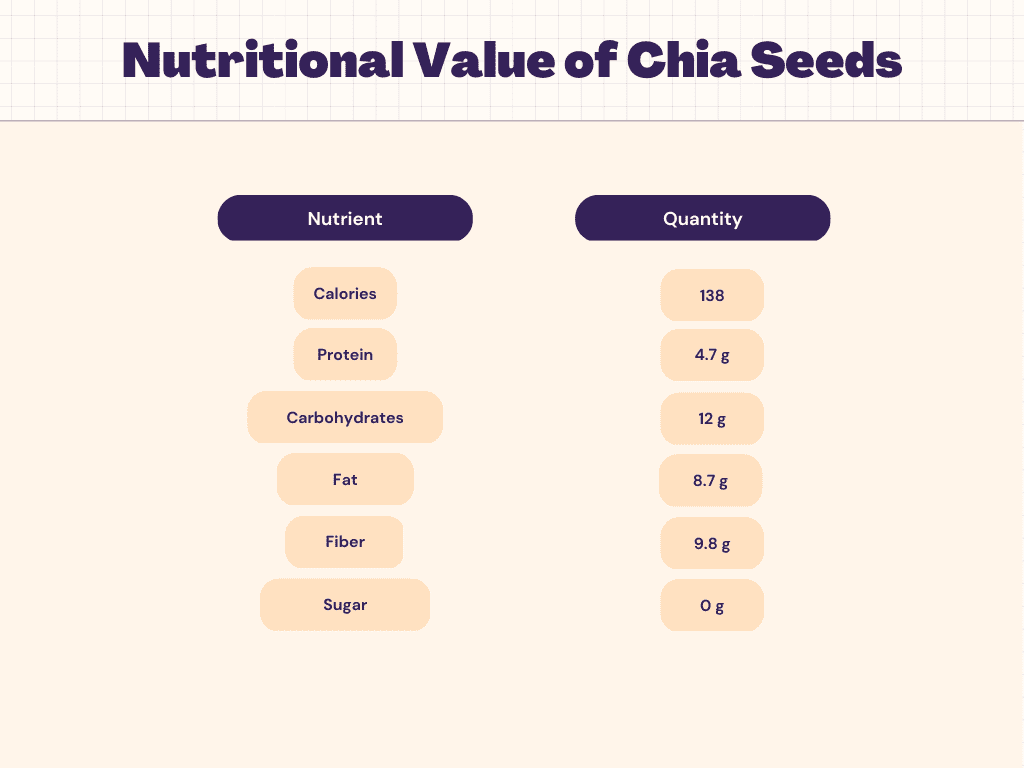Whether consumed dry or blended into a gel, the small black or white seeds of the Salvia hispanica plant are a great source of fiber and omega-3 fatty acids. These tiny seeds also contain a variety of advantageous plant substances that can be very helpful in the treatment of diabetes and heart disease.
Nutritional Value of Chia
Nutritional Facts of Chia
Carbs
12 grams of carbs may be found in 1 ounce of dried chia seeds. Almost 10 grams of this are made up of fiber. Chia seeds don’t contain any sugar.
Fat
A 1-ounce serving of chia seeds contains 8.7 grams of good fats. Omega-3 fatty acids often referred to as linolenic and alpha-linolenic acids, makeup about 60% of the fat in chia seeds.
Protein
Per ounce, chia seeds contain 4.7 grams of protein. Chia seeds are a good plant-based source of complete protein since they contain all nine amino acids, unlike the majority of plant-based meals.
Health Benefits Of Chia
- Helps with Diabetes Management – Chia seeds’ high fiber and omega-3 fatty acid content make them an excellent long-term diabetic treatment option. Check our Diabetes Management plans.
- Increases Immunity – Chia seeds are a great source of omega-3s, which have long been known to aid the immune system, including several T-cell and B-cell subtypes.
- Helps with constipation – In just a quarter cup serving, chia seeds meet 50% of the typical diet’s fiber needs. Many health advantages of fiber, particularly in terms of digestive health, are available. Chia seeds contain two types of fiber: roughage, or insoluble fiber, and soluble fiber, which mixes with water.
- Helps prevent Cancer – Kaempferol, a healthy flavanol, is found in chia seeds. Kaempferol-rich food sources have the potential to fight cancer by influencing a number of cellular processes, including apoptosis and signaling. Breast cancer, liver cancer, brain cancer, colon cancer, and other cancers can all be prevented by kaempferol.
- Promotes heart health – Visceral fat level, a separate risk factor for heart disease, also seems to decrease with increasing chia seed consumption.
Vitamins & Minerals in Chia
Important micronutrients, particularly minerals, are provided by chia seeds. You may get 2.2g of iron (about 12% of the daily dose) and 179mg of calcium (about 13% of the daily value) in a 1-ounce meal. Magnesium and zinc are both found in chia seeds in high concentrations.
The Bottom Line
Chia seeds may be small, but they’re incredibly rich in nutrients. A staple in the ancient Aztec and Maya diets, these seeds have been touted for their health benefits for centuries. Chia seeds provide minerals that may support strong bones, improve blood sugar control, and support heart health.
Chia seeds are also adaptable and can be utilized in a variety of dishes. Personally, I make chia pudding by combining them with liquid and enjoying its gel-like consistency.
FAQs
How many Chia seeds can I eat in a day?
0.7 ounces (20 grams, or about 1.5 teaspoons) of chia seeds twice daily is a typical dosage suggestion. To avoid any negative effects on your digestion, don’t forget to drink lots of water.
Should I eat chia seeds before or after exercise?
Chia can aid with providing fat for fuel after the carbs burn off during a lengthy, intensive activity. Eat some chia a few hours beforehand. They include protein that can help with tissue healing if consumed after exercise. You can also consume them while engaging in prolonged action, such as biking or hiking, to significantly boost your energy levels.
What are the benefits of Chia seeds?
- Helps with weight loss
- Helps with constipation
- Increases heart health
- Helps with diabetes
- Helps with cancer
What is the best time to eat chia seeds?
Chia seeds with water in the morning aid to improve bowel movements and give your digestive system a boost. A healthy digestive system is necessary for weight loss. Chia seeds are best consumed in the morning. Chia seed consumption promotes satiety, which leads to lower calorie intake.










